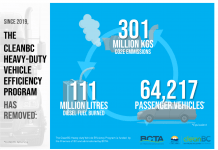Have you been feeling like some days take forever? Or that it seems like the Spring was only yesterday? You are not alone. Recent research in the UK validated what many of us have been feeling- that one strange effect of the Pandemic has been a distorted perception of time.
How we perceive the world around us and how think about those perceptions influences how we feel and behave. And as to time, we all know that time passes at a constant and linear rate (unless of course you are a character in a Star Trek plot.) But our subjective experience of linear time is influenced by our activity level and by our emotional state. The Pandemic and its restrictions on normal activities has demonstrated that fact.
The British study of 604 participants looked into their perception of the flow of time during the lockdowns associated with Covid. The researchers found that that more than 8 out of 10 said they experienced some type of changes to their perception of the passage of time. It found that the description of the distortion generally fell into two groupings. One group experienced time as passing more slowly. People in this group generally were older, reported more feelings of stress or depression, had less tasks to do, and generally felt more isolated and lonelier during the lockdown. Lending a sort of credence to the saying that “time flies when you’re having fun,” the second group reported that time seemed to go by faster. This group tended to be younger, have more tasks to be engaged with and reported less distress associated with the forced restriction of normal activities. The research not only validated what many of us have been feeling about the passage of time, but also demonstrated the powerful impact of loss of routine and our varying adaptation to it.
Here are some tips to re-set your internal clock.
Reclaim and commit to a routine to your day and week. Our brain craves routine and predictability regardless of our age or status.
Spend time regularly in the outdoors. Spending time with nature can help us to relax mentally and outdoor activity is a great stress reducer.
Get regular sleep and rest. Not only is good sleep physically and mentally restorative, but regular sleep patterns also help adjust our internal clocks.
Stay connected to family and friends. “Social distancing” is really physical distancing. Staying involved with family and friends may be a bit more challenging today than normal, but it’s important so we can reduce feelings of isolation and loneliness.
About the Author
Norman Winegar, LCSW, CEAP, NCAC II, DOT Qualified SAP is the Chief Clinical Officer at Espyr, a behavioral health company based in Atlanta, GA that serves the logistics industry. For over 30 years, Norman has practiced in behavioral health, substance abuse treatment, and Employee Assistance Program practice settings. He has also worked in leadership positions in both public and private sector behavioral health organizations. An author of four books, he is frequently called on for presentations and as a panelist to share his expertise and experience as a mental health professional. He can be reached at: nwinegar@espyr.com www.espyr.com

























